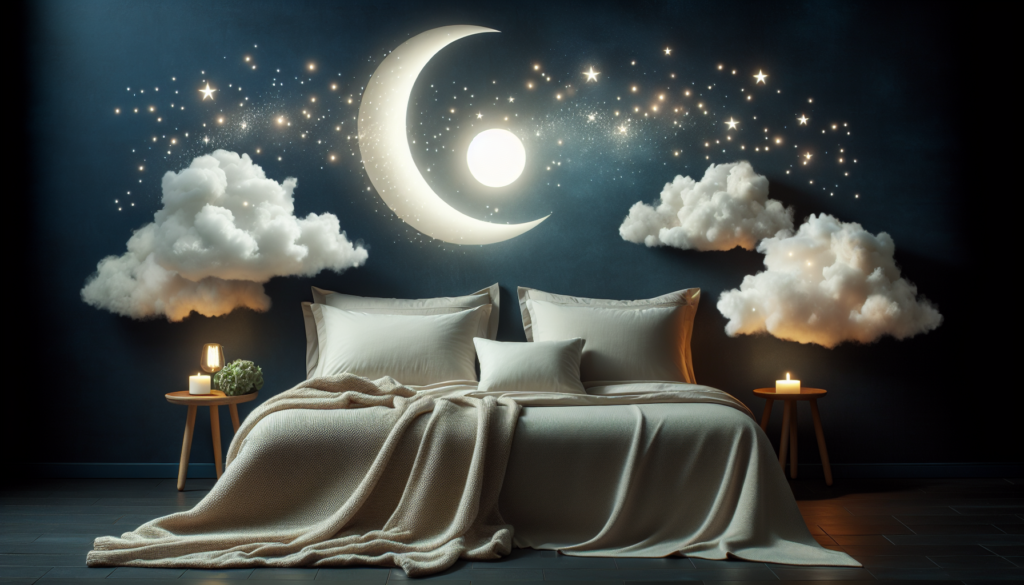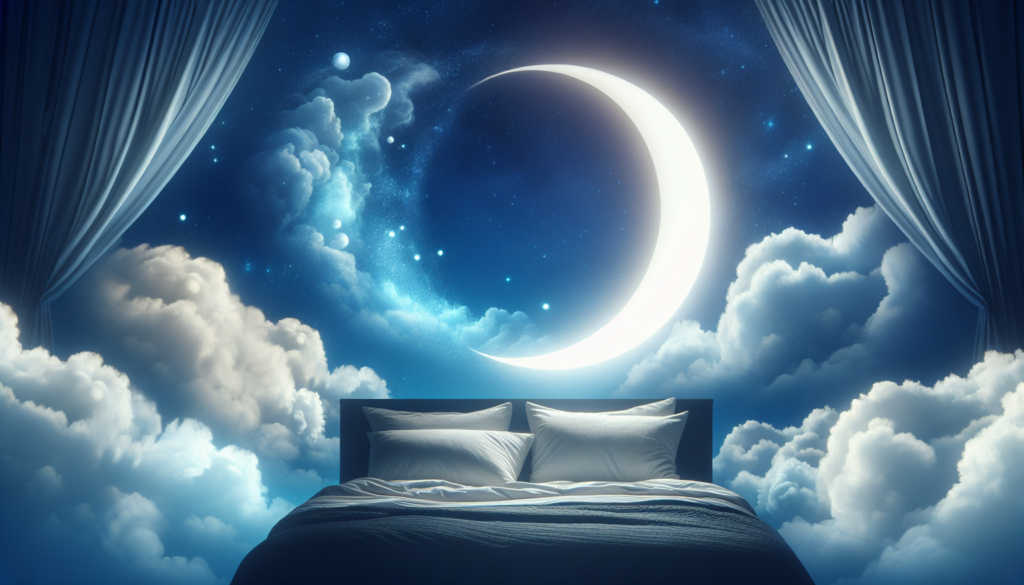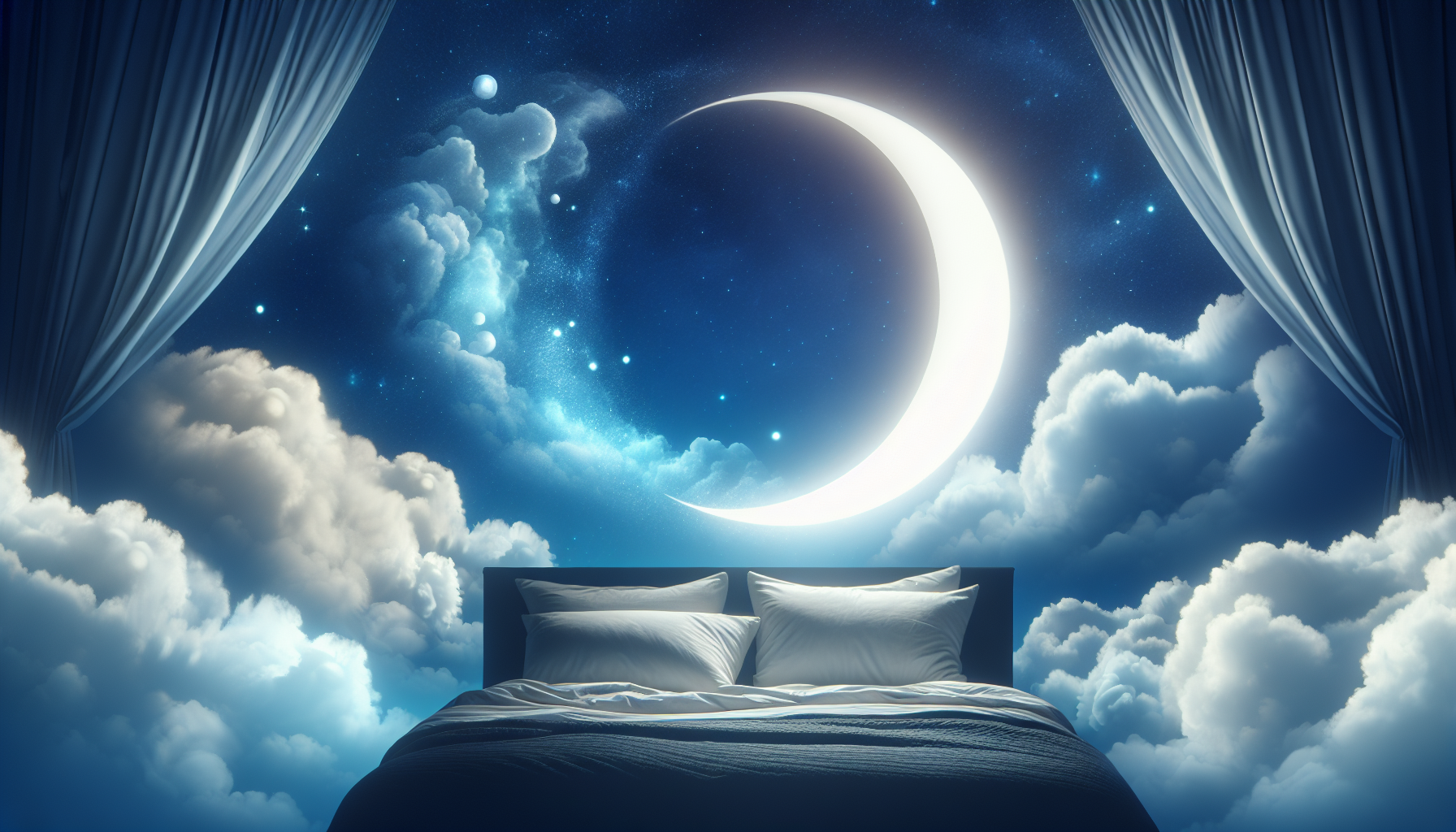Have you ever stumbled out of bed, zombie-like, bumping into doors and questioning your entire existence because you only managed to snag a meager few hours of sleep? Or perhaps, you’ve found yourself on a couch that magically has transformed into a squishy cloud, sinking deeper into its cushions, drool pooling elegantly beneath your chin, only to abruptly wake up feeling like you’ve battled an army of stress gremlins in your dreams? It’s time we chat about the wildly amusing, yet fundamentally crucial aspects of sleep and precisely why our bodies are like untrustworthy toddlers without it.
Why does sleep matter so much? Why can’t it be like missing a meal – slightly inconvenient, but ultimately survivable? Oh, no, dear reader, attempting to cheat the sleep cycle leaves you in a fragile state of existential pondering, questioning not only your capacity for cognitive tasks but whether you should be allowed near heavy machinery or small children. So, buckle up, as we unravel the bizarre yet essential entanglement between restful sleep and the art of recovery. By the end of this exploration into the land of nod, you might just find yourself throwing a pajama party every night to celebrate sleep like the rockstar it truly is.
What Exactly Happens When You’re Sleeping?
First things first, pretending that sleep is just our brains playing hide-and-seek with consciousness is a gross understatement. It isn’t just a Snooze Button Olympics; oh no, your brain is planning, coordinating, and throwing an entirely different type of all-nighter.
The Sleep Stages: As Complicated as a Soap Opera Plot
Ever wonder if your brain secretly auditions for soap operas while you sleep? In a bizarre twist, sleep moves in stages that can rival any dramatic storyline.
| Sleep Stage | Description |
|---|---|
| Stage 1 (NREM) | The lightest stage, where you could wake to the sound of a feather falling. |
| Stage 2 (NREM) | Your heart rate drops because even it needs a break from your drama. |
| Stage 3 (NREM) | The deep sleep stage that’s as elusive as a unicorn but oh-so rejuvenating. |
| REM Sleep | The stage where dreams defy logic and gravity, making you the action hero. |
Stage 1 is akin to the elevator music of sleep. It’s gentle and soothing, but frankly, you could do without it given a more dramatic option. Next, Stage 2 sees your brain waving a white flag to stress-induced chaos with a decreased heart rate. Stage 3 is the golden snitch of sleep: snag it, and you’ll feel invincible. Finally, REM sleep is the grand finale, starring you in the lead role of your subconscious cinema, ready to battle anything from cookie monsters to awkward high school reunions.
Brain’s Cleaning Crew: The Glymphatic System
There’s a magical cleaning crew in your head working tirelessly while you slumber, known as the glymphatic system. Engaged during sleep, this system clears out waste products in the brain. We’re talking about clearing out beta-amyloid, associated with potential brain fog and diseases cued ominously by names like Alzheimer’s. The Glymphatic System may not have a catchy theme song, but it’s the unsung hero of sleep, ensuring your cognitive pathways aren’t littered with yesterday’s unresolved dilemmas and existential crises.
Why Does Recovery Need Sleep As Much As You Need Coffee?
The thing about recovery is, much like your best friend who insists they only need ten minutes to get ready – it’s never as simple as it seems. Recovery is an ultra-complex series of orchestrations by your body demanding sleep like a diva demands sparkling water in her dressing room.
The Muscle Menders: Protein Synthesis
Imagine a crowd of fanatical bodybuilders hanging out inside your muscles. While you’re asleep, their favorite pastime is fixing micro-tears caused by your ambition and stubborn determination to lift weights that maybe deserved a second thought. This attempt at muscle mending is critical, as this is where protein synthesis takes center stage. Protein synthesis is like the fairy godmother to sore muscles, waving its anabolic wand to heal, rebuild, and even grow your muscles.
Hormonal Harmony: The Release of Growth Hormone
While you escape to dreamworlds where cats rule societies and pizzas have no calories, your pituitary gland is busy working toward hormonal harmony. Growth hormone—the unsung heroogist in a musician-like symphony—is released predominantly during sleep and instrumental in tissue repair, muscle growth, and bone health. Missing out on shut-eye is like your pituitary gland deciding to take a vacay in the Bahamas, leaving those much-needed growth hormones sunbathing, rather than tending to vital repair tasks.

When Dreams Dance and Facts Fiddle: Sleep for Mental Recovery
If sleep is the sandwich, then mental recovery is the crucial layer of mayonnaise that holds everything together. Mental recovery doesn’t just twirl around the realm of sweet, nonsensical dreams.
Synapse Solidarity: Strengthening Connections
As you dream of speaking fluent Klingon or climbing Mount Everest in flip-flops, sleep is where your brain strengthens the tangled web of synapses that essentially make you, well, you. It does so by enhancing oxidative metabolism and ensuring the coherence of synaptic strengths. While this sounds like a homemade science project gone awry, adequately solidified synapses are critical for memory, learning, and creativity.
Daydream Breakthrough: Cognitive Function Unleashed
Let’s muse for a moment that while awake, your prefrontal cortex—responsible for problem-solving and rational decision-making—acts like a savvy yet slightly neurotic manager of a chaotic rehearsal. Without sufficient sleep, this manager arrives late, spilling coffee on their ‘I heart spreadsheets’ t-shirt and eyeing the exit. Therefore, healthy sleep habits significantly unleash your cognitive prowess, turning you from a forgetful goldfish into a memory-whiz dolphin.
The Antagonists: What Happens When Sleep Gets Shoved to the Side
As with any good hero’s journey, sleep also faces its share of antagonists. Chronic sleep deprivation can unleash a comedic mishap in bio-mechanics marked by questionable emotional outbursts, confusion, and sleep-deprivation meltdowns.
Emotion Explosion: Over-reacting Like It’s 1999
Sleep inadequacy results in your limbic system—specifically the amygdala—going rogue. Imagine it compiling a repertoire of emotional interpretive dances ranging from rage against stubbing toes to sobbing over a heartwarming puppy video. This ‘emotion explosion’ lays claim in frustrating scenarios where small slights seem unforgivable, and arguments sprout from supermarket produce choices.
The Insulin Sneer: Metabolic Mischief
Ever feel like merely looking at a donut while sleep-deprived means you’re absorbing calories through your pores? Adequate sleep is a powerful ally against insulin resistance and weight gain, as sleep deficiency can create a misfire in insulin secretion leading to high blood sugar levels – a scenario where metaphorical mischief seizes the day.

The Sleep Experiment: Can You Train Your Brain?
Could sleep be akin to mastering origami? Can it become an exercise in practice makes perfect, capable of being fine-tuned for effective recovery and renewed energy? Sleep isn’t entirely unlike taming a stubborn plant that insists on sprawling toward sunlight—eventually, you’ll discover what works best for you.
Personalized Sleep Recipe: Crafting Your Sleep-Centric Strategy
Building a sleep pattern is like crafting your personal recipe book where you consider every element and experiment to achieve the perfect recipe that unlocks your most restful sleep.
-
Sleep Environment: The darkness of blackout curtains or perhaps the gentle hum of a white noise machine might be your Sleep Symphony—take note of what helps you drift.
-
Consistency: Establishing bedtime routines and wake-up times as steadfastly as a cat with a dinner bell.
-
Technology Timeout: Toss aside glowing screens like they were last season’s fashion fuss and adopt a good book or calming music instead.
Your Personal Sleep Chronotype: The Early Bird vs. Night Owl Debate
Are you a strait-laced early bird or mischief-seeking night owl? Understanding where you fall on the sleep chronotype scale can greatly aid your journey in determining at what time sleep best aligns with your body’s natural rhythm. Discovering your chronotype is not unlike discovering you had a hidden talent for air-guitar solos or uncanny Ron Swanson impersonations—unexpected but downright rewarding.
The Playful Paradox: Sleeping to Achieve More
The irony isn’t lost on anyone who considered circumventing sleep to achieve more, albeit ostensibly counterproductive. Sleep is less a pit stop and more a critical component of the mental Olympics, where resting equates to winning gold in recovery and performance – a reward for respecting your body’s innate need to recuperate gracefully.
Waking Up to Your Best Self
Sleep, often effortlessly shrugged off like last Tuesday’s leftover lasagna, is (ironically) the ticket to waking up as your most spectacular self. So, if you’ve ever found yourself pondering the marvel that is human sleep from a dingy late-night laundromat, perhaps it’s time to don your ninja pajamas and embrace a schedule inspired by healthier Zzz’s.
Bringing It All Together
The essential connection between sleep and recovery is truly the brainchild of innumerable scientific discoveries, more enduring than attempting to survive on string cheese and optimism. The intertwined paths of sleep and recovery divert us from the realm of health masquerade and mascara-streaked, sleep-deprived misadventures to a place of genuine restoration and well-needed rejuvenation. Admittedly, the act of ‘sleeping on it’ is not some philosophical conundrum but rather a gift of immense potential: a testament to the healing magic interspersed amidst the many phases of hazy nocturnal wanderings.
In mastering the cozy art of an unapologetically powerful slumber, you transform sleepless nights into a carefully crafted opus, celebrating bedtime’s triumph over chaos’s constant clutches. Acknowledging the quirky genius of sleep—however bizarre and dream-riddled—allows you to embrace and harness its innate necessity and surprising humor with genial camaraderie. Now, go forth, brave sleeper, may your dreams be vivid, your rest restorative, and your recovery as swift as a narcoleptic cat receiving a forehead bake in the afternoon sun.
